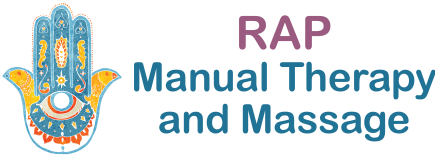Ibogaine Therapy
A New Approach to Trauma, Addiction, Traumatic Brain Injury, Neurodevelopmental Disorders, and Neurodegenerative Conditions
Ibogaine therapy is emerging as a groundbreaking treatment for a range of complex neurological and psychological conditions, including trauma, addiction, traumatic brain injury (TBI), neurodevelopmental disorders, and neurodegenerative conditions. Derived from the root bark of the African shrub Tabernanthe iboga, ibogaine has been used for centuries in traditional rituals by the Bwiti people of Gabon. In recent decades, its potential therapeutic benefits have garnered attention in modern medicine, offering hope for conditions that are often resistant to conventional treatments.
Ibogaine is a naturally occurring psychoactive alkaloid that interacts with multiple neurotransmitter systems in the brain, including serotonin, dopamine, and opioid receptors. Its unique mechanism of action is believed to “reset” neural pathways, which may explain its efficacy in treating addiction. For individuals struggling with substance use disorders, ibogaine has shown remarkable results in reducing withdrawal symptoms and cravings, particularly for opioids, alcohol, and stimulants. Studies suggest that a single dose can interrupt addiction cycles by providing a window of clarity, allowing patients to address underlying psychological issues through therapy.
 Beyond addiction, ibogaine is being explored as a treatment for trauma and post-traumatic stress disorder (PTSD). The compound induces a dream-like state, often described as a “waking dream,” where patients report revisiting past experiences with a new perspective. This introspective process can help individuals process and release trauma, leading to significant reductions in PTSD symptoms. Clinics in countries like Mexico and Costa Rica, where ibogaine is legal, have reported success rates of up to 60% in trauma resolution after guided sessions. However, these findings need further validation through controlled trials.
Beyond addiction, ibogaine is being explored as a treatment for trauma and post-traumatic stress disorder (PTSD). The compound induces a dream-like state, often described as a “waking dream,” where patients report revisiting past experiences with a new perspective. This introspective process can help individuals process and release trauma, leading to significant reductions in PTSD symptoms. Clinics in countries like Mexico and Costa Rica, where ibogaine is legal, have reported success rates of up to 60% in trauma resolution after guided sessions. However, these findings need further validation through controlled trials.For traumatic brain injury (TBI), ibogaine’s neuroprotective properties are of particular interest. Preliminary research indicates that it may promote neuroplasticity—the brain’s ability to reorganize and form new neural connections. This could aid recovery in TBI patients by repairing damaged pathways and improving cognitive function. Similarly, ibogaine’s potential in neurodevelopmental disorders, such as autism or ADHD, is being investigated. Its ability to modulate neurotransmitter activity might help regulate the atypical neural patterns seen in these conditions, though research is still in its infancy.
Ibogaine’s role in neurodegenerative conditions like Parkinson’s or Alzheimer’s is less clear but promising. Some studies suggest it may reduce oxidative stress and inflammation in the brain, both of which contribute to neuronal degeneration. Additionally, its impact on the brain-derived neurotrophic factor (BDNF), a protein that supports neuron growth, could slow disease progression. However, these applications require rigorous clinical trials to establish safety and efficacy.
Despite its potential, ibogaine therapy is not without risks. The compound can cause serious side effects, including cardiac arrhythmias, which may be mitigated by administering magnesium during treatment, though it remains illegal in many countries, including the United States. As of May 1, 2025, there is an ongoing attempt to legalize the clinical development of ibogaine therapy through Texas State legislation, with bills like HB 3717 and SB 2308 aiming to fund FDA-approved clinical trials for opioid use disorder, trauma, and other neurological conditions. Treatment must be administered in a controlled medical setting with proper screening and monitoring. As research progresses, ibogaine may redefine how we approach some of the most challenging neurological and psychological conditions, offering a holistic path to healing where traditional methods fall short.

